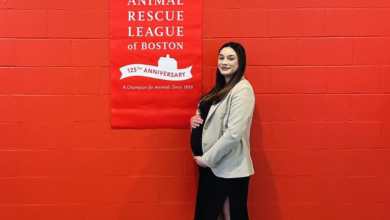Memoir 26: The Secret Account – A UPI Earthquake in Mexico City

By Upendra Mishra
BOSTON — Life in Mexico City was humming along. I had recently married and moved there with my wife, ready to enjoy a vibrant new chapter. I was Bureau Chief for United Press International (UPI), overseeing news coverage across Mexico, Central America, and the Caribbean. We were settling in beautifully—until one afternoon, an unexpected conversation shook everything.
A colleague from the Mexico City bureau pulled me aside.
“Señor Upendra,” he said cautiously, “may I speak with you in strict confidence?”
I figured it had something to do with his career—maybe a transfer, maybe some office politics. We stepped out for lunch.
“There’s something going on here… something with the money,” he said, lowering his voice. “I think you should look into it.”
That got my attention. Money? That wasn’t my domain—I was there to run the editorial side. But he continued. He had seen personal checks drawn from UPI accounts, not once or twice, but many times. He sounded sure of himself, and I had no reason to doubt him.
That night, I told my wife. She was just getting used to Mexico, exploring the culture and language. We were happy. I asked her, “What would you do?”
“If it feels real,” she said, “you have to tell your boss.”
I hesitated. Why rock the boat? But something wasn’t right, and more whispers began to surface. I decided to act.
The next morning, I called Michael Keats at UPI’s Washington, D.C. headquarters. I relayed what I knew—carefully. He thanked me for bringing it to his attention and said he’d think it over. A week later, he called back.
“We’re sending an auditor,” he said. “Quietly. No one at the local office should know.”
I arranged everything—the auditor’s hotel near our office, a discreet schedule. When he arrived, we went straight to the bank.
The bank manager knew me well. I introduced the auditor, explained that he was from the D.C. office conducting a confidential audit. The manager understood and agreed to cooperate.
When the assistant brought out the UPI files, we saw something shocking: two accounts. One was the official UPI account—fully transparent and reported to HQ. The other? A shadow account, also in UPI’s name, but completely off the books. The office manager and local accountant had been siphoning company funds into it for years. From that account, they had bought cars, an apartment for the manager’s daughter, and funded their lifestyles.
We had the smoking gun.
The auditor completed his official audit, finding no trace of the second account in our internal records. We now had solid proof of embezzlement.
We called Michael Keats with our findings. Within days, I received a thick, 100-page Power of Attorney document from D.C. I was now officially authorized to initiate legal proceedings. In addition to being Bureau Chief, I was named General Manager for the region. First task: hire a new accountant. Second: prepare the lawsuit.
I was in my early 30s, a foreigner in Mexico, and had never handled something like this. Some colleagues warned me—this manager had dangerous friends. “Be careful,” they said. “Your life could be in danger.” I felt it too. But the wheels were in motion.
I was just a kid from India—raised with values of integrity, respect, and hard work—now suddenly entangled in the legal and labor labyrinth of a foreign land. I didn’t speak Spanish fluently to understand legal language, and I certainly had no knowledge of Mexican labor laws, trade union dynamics, or even the unwritten rules of how business and power operated there. The only thing I had going for me was my sense of right and wrong—and a deep belief that truth, no matter how dangerous, should win.
Working for a major American news agency added another layer of complexity. In Mexico, the perception of American companies was mixed. Some respected them. Others resented their influence.
I was seen as a proxy for UPI’s headquarters in Washington, D.C.—a foreign face representing a foreign power. That made me an easy target. Inside the office, loyalties were already frayed. Outside, the former manager was fueling dangerous narratives against me. It was overwhelming at times, but I knew I had to find the strength to navigate this—not just for UPI, but to prove to myself that I could stand tall, even in unfamiliar terrain.
One day, walking past the Indian Embassy, I noticed a lawyer’s office. I walked in.
“I need someone who can handle a serious case,” I told them. “Preferably someone who understands… how things work here.”
They got the message. After a couple of meetings, the firm agreed to take the case. We would pursue the fraudsters—but first, we had to get the manager out.
Firing him wouldn’t be easy. In Mexico back then, dismissing employees—even for cause—required financial compensation. The accountant resigned quietly. The manager, however, demanded a massive severance and immunity from any legal action.
We met at a restaurant near the office—me, the lawyer, and the manager, a large, intimidating man. He thought he could bulldoze me.
“I’ll resign,” he said, “but only if I’m paid. And no lawsuit.”
I couldn’t help myself.
“You’re going to resign,” I snapped. “We have the documents. You stole from the company. We’re not paying you a single peso.”
He leaned in. “Señor Upendra,” he growled. “Guess who’s more powerful here—you or me? You’re playing a dangerous game.”
The tension was electric. The lawyer stepped in to de-escalate. “Let’s reconvene tomorrow,” he said.
The next day, the manager was quieter. The lawyer handed him a prepared resignation letter. Without a word, he signed.
That wasn’t the end. The attorney advised that we should still file a civil case to recover some of the stolen money. We had the proof, including deeds showing the apartment bought in his daughter’s name. The lawyer would take 30% of whatever was recovered—success fee only. I agreed.
We filed the case.
Hell broke loose again.
A formal notice arrived from the UPI union—el sindicato. Their demands were absurd. Threats of a strike loomed. I later learned that the manager had incited the union, painting me as a D.C. puppet sent to exploit local staff and funnel resources back to the U.S.
I met with union leaders. They wouldn’t listen. They had worked with the manager for years; I was the outsider. Worse, the national union got involved.
In a tense meeting, I laid out the facts. Still, they tried to play hardball. Something snapped in me.
I stood up, pointed at one of their leaders—and fired him on the spot.
The room went silent.
They didn’t expect that from the “foreign kid.” That bold move changed everything. We negotiated a reasonable settlement with the union. Their strike threat vanished.
Eventually, the former manager settled the civil suit, agreeing to repay UPI in monthly installments. The lawyer took his cut, and life finally began to stabilize.
I had joined UPI as a journalist, passionate about writing and editing. But suddenly, I was managing legal battles, client relationships, finances, and regional operations.
That was the earthquake that changed everything.
Stay tuned for Memoir 27: Travelling across Central America and the Caribben.
(Upendra Mishra is the author of After the Fall: How Owen Lost Everything and Found What Really Matters and Precise Marketing: The Proven System for Growing Revenue in a Noisy World. He is managing partner of The Mishra Group. Learn more at www.UpendraMishra.com)
.





